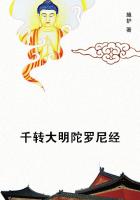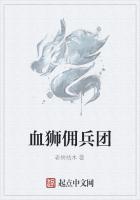FIRST TRACTATE.
THE ANIMATE AND THE MAN.
1.Pleasure and distress, fear and courage, desire and aversion, where have these affections and experiences their seat?
Clearly, either in the Soul alone, or in the Soul as employing the body, or in some third entity deriving from both.And for this third entity, again, there are two possible modes: it might be either a blend or a distinct form due to the blending.
And what applies to the affections applies also to whatsoever acts, physical or mental, spring from them.
We have, therefore, to examine discursive-reason and the ordinary mental action upon objects of sense, and enquire whether these have the one seat with the affections and experiences, or perhaps sometimes the one seat, sometimes another.
And we must consider also our acts of Intellection, their mode and their seat.
And this very examining principle, which investigates and decides in these matters, must be brought to light.
Firstly, what is the seat of Sense-Perception? This is the obvious beginning since the affections and experiences either are sensations of some kind or at least never occur apart from sensation.
2.This first enquiry obliges us to consider at the outset the nature of the Soul- that is whether a distinction is to be made between Soul and Essential Soul [between an individual Soul and the Soul-Kind in itself].** All matter shown in brackets is added by the translator for clearness' sake and, therefore, is not canonical.S.M.
If such a distinction holds, then the Soul [in man] is some sort of a composite and at once we may agree that it is a recipient and- if only reason allows- that all the affections and experiences really have their seat in the Soul, and with the affections every state and mood, good and bad alike.
But if Soul [in man] and Essential Soul are one and the same, then the Soul will be an Ideal-Form unreceptive of all those activities which it imparts to another Kind but possessing within itself that native Act of its own which Reason manifests.
If this be so, then, indeed, we may think of the Soul as an immortal- if the immortal, the imperishable, must be impassive, giving out something of itself but itself taking nothing from without except for what it receives from the Existents prior to itself from which Existents, in that they are the nobler, it cannot be sundered.
Now what could bring fear to a nature thus unreceptive of all the outer? Fear demands feeling.Nor is there place for courage:
courage implies the presence of danger.And such desires as are satisfied by the filling or voiding of the body, must be proper to something very different from the Soul, to that only which admits of replenishment and voidance.
And how could the Soul lend itself to any admixture? An essential is not mixed.Or of the intrusion of anything alien? If it did, it would be seeking the destruction of its own nature.Pain must be equally far from it.And Grief- how or for what could it grieve? Whatever possesses Existence is supremely free, dwelling, unchangeable, within its own peculiar nature.And can any increase bring joy, where nothing, not even anything good, can accrue? What such an Existent is, it is unchangeably.
Thus assuredly Sense-Perception, Discursive-Reasoning; and all our ordinary mentation are foreign to the Soul: for sensation is a receiving- whether of an Ideal-Form or of an impassive body- and reasoning and all ordinary mental action deal with sensation.
The question still remains to be examined in the matter of the intellections- whether these are to be assigned to the Soul- and as to Pure-Pleasure, whether this belongs to the Soul in its solitary state.
3.We may treat of the Soul as in the body- whether it be set above it or actually within it- since the association of the two constitutes the one thing called the living organism, the Animate.
Now from this relation, from the Soul using the body as an instrument, it does not follow that the Soul must share the body's experiences: a man does not himself feel all the experiences of the tools with which he is working.
It may be objected that the Soul must however, have Sense-Perception since its use of its instrument must acquaint it with the external conditions, and such knowledge comes by way of sense.
Thus, it will be argued, the eyes are the instrument of seeing, and seeing may bring distress to the soul: hence the Soul may feel sorrow and pain and every other affection that belongs to the body;and from this again will spring desire, the Soul seeking the mending of its instrument.
But, we ask, how, possibly, can these affections pass from body to Soul? Body may communicate qualities or conditions to another body:
but- body to Soul? Something happens to A; does that make it happen to B? As long as we have agent and instrument, there are two distinct entities; if the Soul uses the body it is separate from it.
But apart from the philosophical separation how does Soul stand to body?
Clearly there is a combination.And for this several modes are possible.There might be a complete coalescence: Soul might be interwoven through the body: or it might be an Ideal-Form detached or an Ideal-Form in governing contact like a pilot: or there might be part of the Soul detached and another part in contact, the disjoined part being the agent or user, the conjoined part ranking with the instrument or thing used.
In this last case it will be the double task of philosophy to direct this lower Soul towards the higher, the agent, and except in so far as the conjunction is absolutely necessary, to sever the agent from the instrument, the body, so that it need not forever have its Act upon or through this inferior.
4.Let us consider, then, the hypothesis of a coalescence.
Now if there is a coalescence, the lower is ennobled, the nobler degraded; the body is raised in the scale of being as made participant in life; the Soul, as associated with death and unreason, is brought lower.How can a lessening of the life-quality produce an increase such as Sense-Perception?

